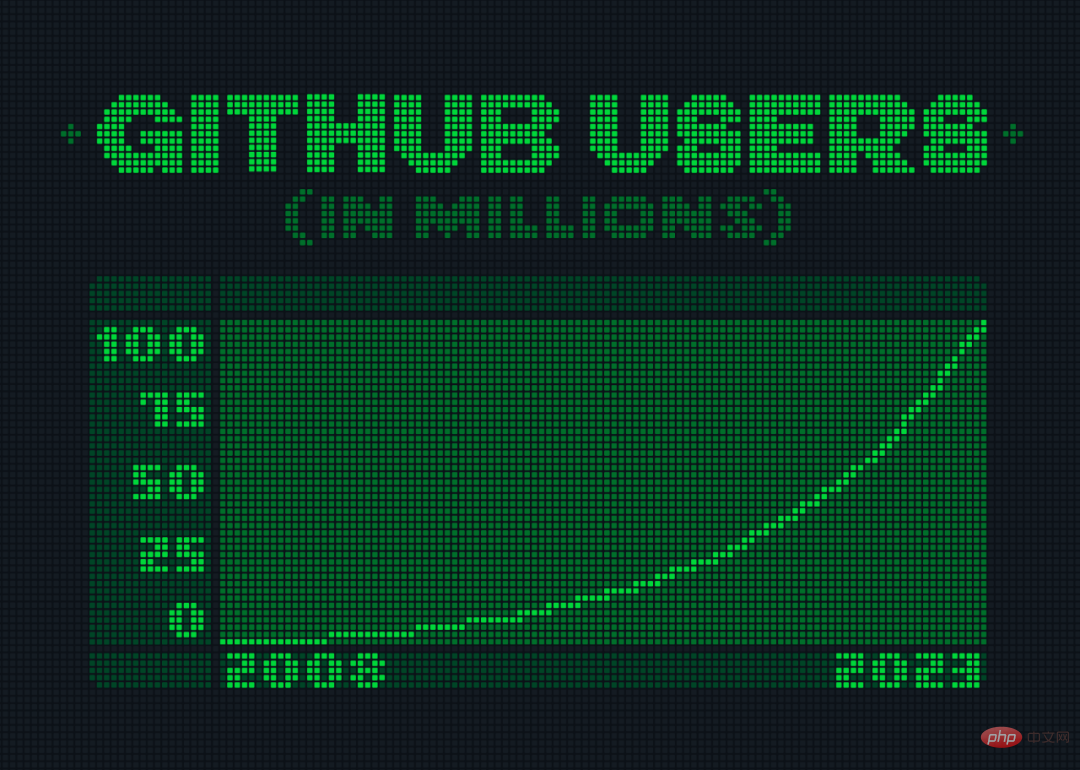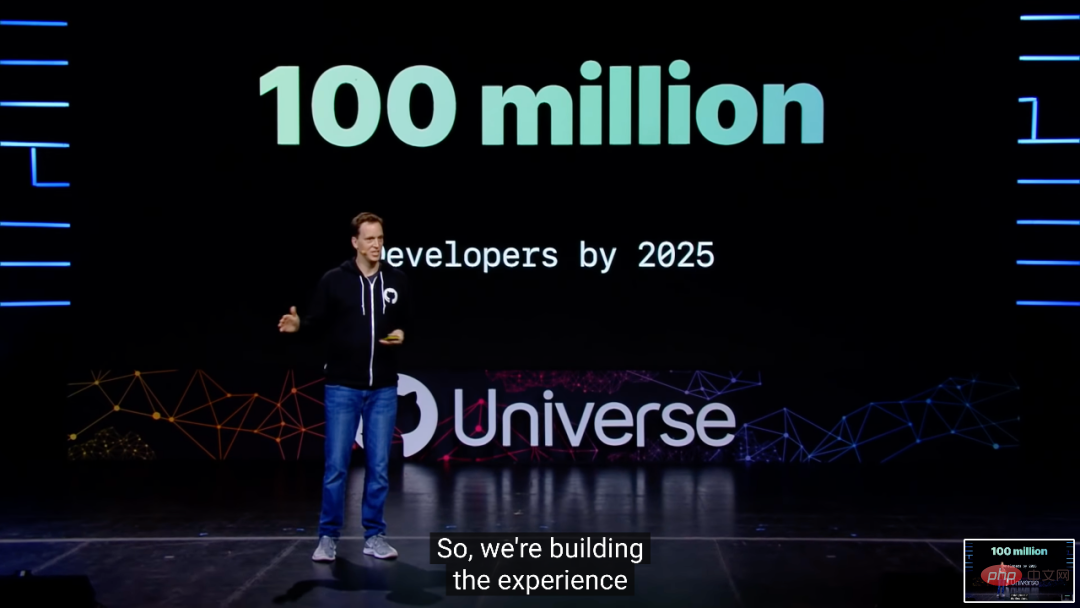
Recently, GitHub, a code hosting platform for open source and private software projects, announced that 100 million developers are now using the platform.

From 0 to 100 million, GitHub took fifteen years to become the world's largest open source code hosting platform. Among these 100 million users, more than 10 million developers are from China.
GitHub said in the announcement: "From creating pull requests to providing AI authorization for developers through GitHub Copilot, everything we do is to put developers first."
GitHub has come a long way since its launch in 2008, and is now the default hosting service for millions of open source and proprietary software projects, allowing developers to share code in different places. libraries to collaborate.
Compared with the original, the number of GitHub developers has increased significantly in more than ten years. In 2013, GitHub reported 3 million users. In 2018, Microsoft acquired GitHub for $7.5 billion, and the number of users revealed in the announcement was 28 million.
During the COVID-19 pandemic, as the proportion of people working from home increased, the GitHub platform ushered in new vitality. Three months ago, the number GitHub revealed in its 2022 annual developer report changed to 94 million users.
From the perspective of national and regional distribution, the number and growth rate of GitHub developer users in China and India is second only to the United States. In the 2021 Octoverse report, GitHub revealed that 7.55 million users are from China. Among the 20.5 million new users of GitHub in 2022, nearly 3.2 million (15.6%) are from China.
At the same time, the power of Indian developers cannot be underestimated: "In 2015, nearly one-third of developers on GitHub were from North America. Today, the fastest-growing region is no longer the United States, but Southeast Asia, Africa and South America. In India alone, more than 10 million developers use GitHub to build software. In Brazil, more than 3 million developers use GitHub."
In a 2019 topic During the speech, former GitHub CEO Nat Friedman said that the company's goal is to reach 100 million developers by 2025.

It seems that GitHub has reached this planned milestone two years ahead of schedule.
When talking about the turning point in the development of GitHub, Copilot must be mentioned.
Copilot is powered by Codex, an AI system developed by OpenAI and licensed to Microsoft. It mainly uses OpenAI's technology to provide suggestions based on user-entered text prompts, generating and recommending lines of code directly in the programmer's code editor.
For Microsoft, GitHub helps it establish connections with the software development world because its initial attitude towards open source software was considered "dismissive." At the same time, Microsoft also used GitHub and its related data to develop the AI-driven programmer assistance tool Copilot.
But more importantly for Microsoft in the short term, the various paid plans offered by GitHub currently contribute about $1 billion in annual revenue.
Copilot launches in preview in 2021 and will be officially released in June 2022. Because Copilot was trained on code publicly available on GitHub, controversy arose shortly after its release over whether it violated copyright laws.
In November 2022, programmer and attorney Matthew Butterick, working with the legal team at Joseph Saveri Law Firm, filed a proposed class action lawsuit claiming that the tool relies on "software piracy on an unprecedented scale." Butterick and his legal team later filed a second proposed class action lawsuit on behalf of two anonymous software developers on similar grounds, a lawsuit that Microsoft, GitHub and OpenAI want dismissed.
According to the filing, Microsoft and GitHub said the complaint "failed due to two inherent flaws: lack of injury and lack of other viable claims," while OpenAI similarly said the plaintiffs "alleged blanket claims that failed to state Infringement of cognizable legal rights". The companies argued that the plaintiffs relied on "hypothetical events" to make their claims and said they failed to describe how they were personally harmed by the tool.
Microsoft and GitHub said in the filing: "Copilot does not extract anything from publicly available open source code. Instead, Copilot helps developers write code, generating recommendations based on all the knowledge it has gleaned from public code ."
Furthermore, Microsoft and GitHub continue to claim that the plaintiffs are "violators of open source principles" and that they are seeking "injunctions and billions of dollars in huge profits" related to "the open source software they voluntarily share." A court hearing to dismiss the lawsuit will reportedly be held in May.
Microsoft has pledged billions of dollars to extend its long-term partnership with OpenAI, despite potential legal challenges hampering the development of AI-powered tools. It is also rumored to be considering bringing AI technology to Word, PowerPoint and Outlook, and possibly adding ChatGPT to Bing.
Microsoft, GitHub and OpenAI are not the only companies facing legal issues. Earlier this month, law firms Butterick and Joseph Saveri filed another lawsuit alleging that artificial intelligence art tools created by MidJourney, Stability AI, and DeviantArt violated copyright law by illegally scraping artists' works from the Internet. Getty Images is also suing Stability AI, claiming the company's Stable Diffusion tool "illegally" scraped images from the site.
The above is the detailed content of GitHub has more than 100 million global users and more than 10 million Chinese developers. Now it has joined forces with Microsoft and OpenAI to request that the AI copyright lawsuit be dismissed. For more information, please follow other related articles on the PHP Chinese website!




